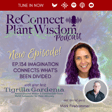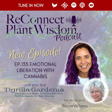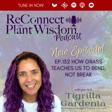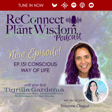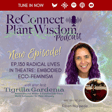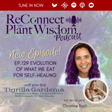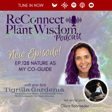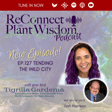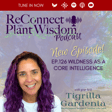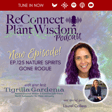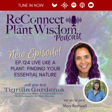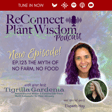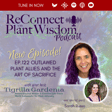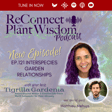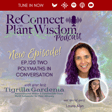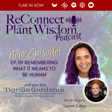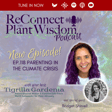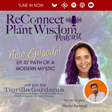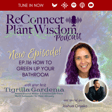
Ep.85 Expanding Your Senses with Natural Perception
In this episode, I discuss the importance of expanding our senses and natural perceptions by working with and as plants. I emphasize the limitations of conventional human logic and highlight the importance of trusting intuition, introducing the concept of synchronicity. You'll hear about how plants, with their numerous senses, guide us beyond cause-and-effect thinking and help us embrace a more intuitive understanding of our environment.
Get practical exercises to enhance your sense of smell and vision, encouraging you to explore beyond conventional limits. By integrating these expanded perceptions into daily life, we can cultivate a deeper connection with our inner plantness and the natural world.
Topics Covered about expanding your senses
➡️ Exploring the difference between plant logic and human logic.
➡️ Practical exercises to expand the sense of smell and vision.
➡️ Embracing intuition and letting go of cause-and-effect thinking.
➡️ Integrating expanded sensory perceptions into daily life.
Resources Mentioned
- Meditation to Expand Your Sense of Smell
- Meditation to Expand Your Sense of Vision
- End of Year 1-Month Intensive Coaching Special
- What's Your Spirit Wild Plant?
🌟Connect with nature-conscious creatives, multipotentialites, and naturentrepreneursin the premier online ecosystem that nourishes plant reawakening and community support for accelerated evolution and co-creation with otherkin. >> JOIN OUR COMMUNITY <<
☝🏽ReConnect with Plant Wisdom podcast Ancient and modern knowledge from biology to spirituality about the wondrous ways plants help you lead a Naturally Conscious life. Subscribe on your favorite podcast player.
// Let's work together: book a Discovery Call
// EcoConscious Business Partners:
Who Gives A Crap? Ecological Toilet Paper USA | UK | AU
Shop Here
// Opening and Closing music by Steve Sciulli and Poinsettia from The Singing Life of Plants
// Socialize with me Facebook | Instagram | LinkedIn | Youtube

